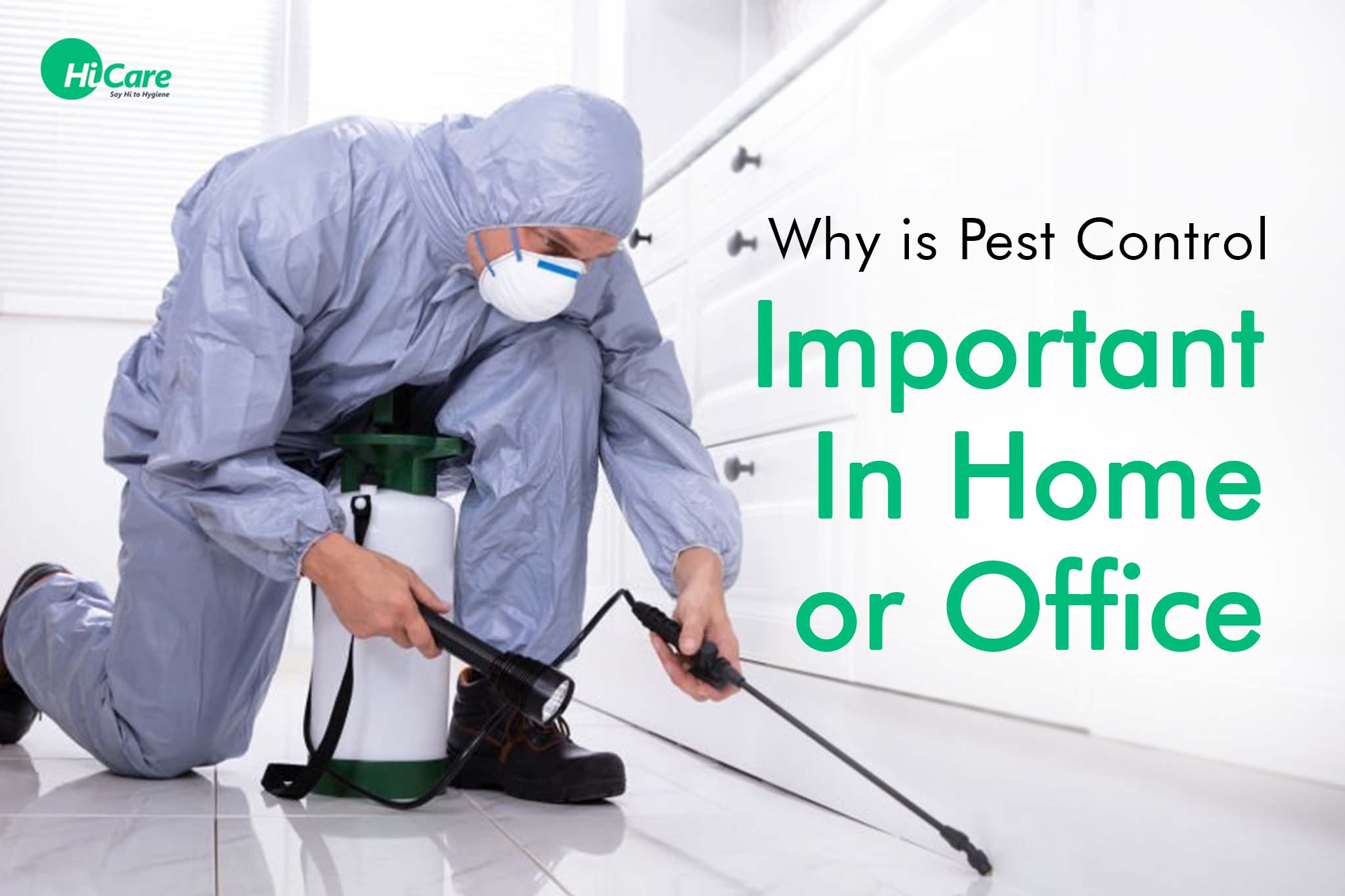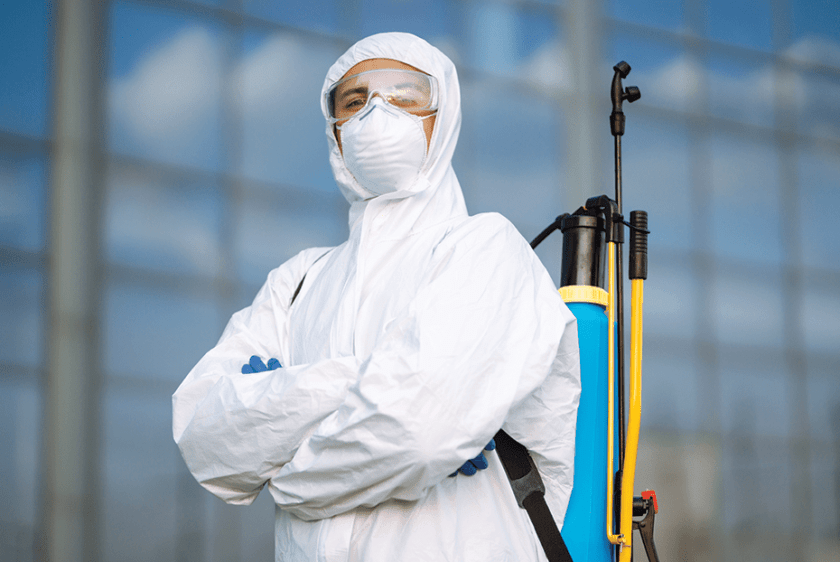Find the Best Exterminator Coquitlam for Fast and Reliable Pest Control
Find the Best Exterminator Coquitlam for Fast and Reliable Pest Control
Blog Article
Safe and Trusted Parasite Control for Lasting Defense
Reliable parasite monitoring requires a diverse strategy that stabilizes eco-friendly honesty with the demand for effective parasite suppression. The nuances of these approaches may not be promptly clear, motivating a closer assessment of the methods that can lead to lasting insect control outcomes.
Comprehending Bug Control Methods
Insect control includes a selection of approaches focused on managing and eradicating unwanted bugs and rodents that can threaten both health and residential property. Recognizing these methods is essential for efficient insect management.
The key classifications of bug control methods consist of mechanical, biological, and chemical techniques. Mechanical methods involve physical barriers and catches to stop parasite access and capture undesirable varieties. Making use of displays on windows or employing sticky catches can dramatically reduce bug populations without presenting harmful compounds - exterminator coquitlam.

Chemical parasite control is frequently one of the most acknowledged technique, making use of chemicals to eliminate parasites. These chemicals can be reliable yet should be made use of with care to prevent unfavorable effects on non-target varieties and the atmosphere.
Advantages of Eco-Friendly Solutions
Just how can environmentally friendly remedies change insect control methods? The adoption of environmentally friendly parasite control approaches uses various advantages, significantly boosting the performance and safety of pest administration.

An additional advantage is the favorable effect on neighborhood biodiversity. Environment-friendly solutions are developed to target specific insects while protecting useful insects and wildlife, advertising a balanced ecosystem. This technique aligns with the expanding customer demand for lasting practices, boosting the credibility of bug control providers.
Integrated Bug Administration Methods
The implementation of green options naturally causes the adoption of Integrated Parasite Monitoring (IPM) methods, which further enhance insect control effectiveness. IPM is an alternative strategy that combines numerous tactics to take care of parasite populaces while decreasing environmental influence. This approach stresses the usage of biological, social, mechanical, and chemical controls, guaranteeing a sustainable and balanced method of bug management.
One basic aspect of IPM is the detailed assessment of insect activity and environmental problems. By monitoring pest populaces and recognizing their life cycles, specialists can execute targeted treatments that interfere with the bug's environment or lifecycle, minimizing reliance on chemical pesticides. In addition, social practices such as plant turning and habitat manipulation can considerably diminish pest establishment and recreation.
One more crucial part is the use of organic control representatives, such as useful pests or bacteria, which can naturally subdue pest populaces. When chemical applications are essential, IPM prioritizes using low-risk pesticides and uses them precisely, lessening exposure to non-target organisms and human beings.
Integrating IPM strategies not just improves bug control performance but additionally promotes a much safer ecological community, straightening with the expanding demand for lasting methods in pest management.
Safe Practices for Home Owners
Comprehending the importance of risk-free practices in parasite control can encourage house owners to properly manage bug problems while securing their health and the environment. Applying non-toxic techniques and preventive steps is critical in minimizing exposure to damaging chemicals.
Property owners ought to initially examine their setting for problems that attract insects, such as standing water, food, and mess waste. Frequently cleaning and securing entrance factors can hinder parasites from attacking the home. Using natural deterrents, such as vital oils or diatomaceous earth, can offer reliable alternatives to chemical pesticides.
When chemical therapies are needed, home owners must choose products that are particularly identified as safe for household use. It is necessary to follow application standards thoroughly to avoid too much exposure. Utilizing targeted treatments in locations where bugs are recognized, instead than blanket spraying, can considerably reduce chemical use.
Lastly, preserving open communication with parasite control specialists is essential. House owners should ask about the safety and security of my company products used and request green choices whenever feasible. By adopting these secure techniques, home owners can produce a much healthier living setting while properly taking care of bug issues.

Tips for Long-Term Security
Establishing a pest monitoring strategy that emphasizes long-term defense can considerably enhance the effectiveness of the risk-free methods previously gone over. To attain this, home owners should implement normal examinations of their property, concentrating on concealed locations such as attics, basements, and crawl spaces. Early detection of parasite task is important in avoiding problems from holding.
In addition, maintaining a tidy environment is crucial. This includes appropriate food storage, promptly cleansing spills, and regularly disposing of garbage. These practices minimize attractants that attract pests right into the home. Sealing access points, such as fractures around doors and home windows, can successfully obstruct potential pest gain access to.
Landscape design needs to likewise be thought about; maintaining plants cut and keeping a range between plant life and the home decreases concealing spots for bugs. Making use of all-natural deterrents, such as necessary oils or diatomaceous planet, can better discourage problems without considering severe chemicals.
Last but not least, working together with an expert bug control service for routine evaluations can give an added layer of safety. These specialists can provide customized recommendations and progressed treatments, making certain that your home continues to be shielded versus bugs in the lengthy term.
Conclusion
In conclusion, risk-free and reputable pest control requires a diverse technique that stresses environmentally friendly techniques and integrated bug administration. By applying all-natural deterrents, conducting routine assessments, and preserving proper sanitation, homeowner can significantly reduce insect populations while safeguarding useful bugs and the environment. Cooperation with expert insect control services boosts the efficiency of these techniques, ensuring tailored remedies that offer enduring security and comfort versus future infestations.
Reliable parasite management needs a complex technique that stabilizes eco-friendly stability additional hints with the demand for efficient insect suppression. The adoption of environmentally friendly pest control approaches offers countless advantages, significantly boosting the effectiveness and security of bug administration.The application of green remedies naturally leads to the adoption of Integrated Bug Management (IPM) methods, which better improve bug control effectiveness. exterminator coquitlam. By keeping track of bug removal companies parasite populaces and identifying their life cycles, experts can implement targeted treatments that interfere with the pest's environment or lifecycle, minimizing dependence on chemical pesticides.In final thought, risk-free and reliable insect control requires a complex approach that stresses eco-friendly approaches and integrated pest administration
Report this page